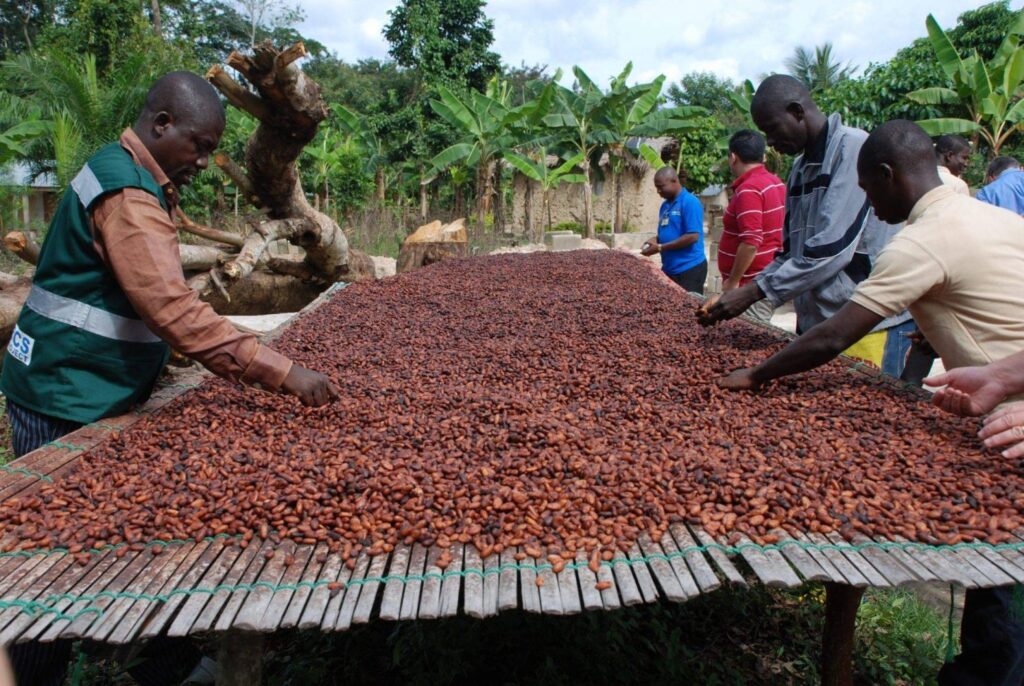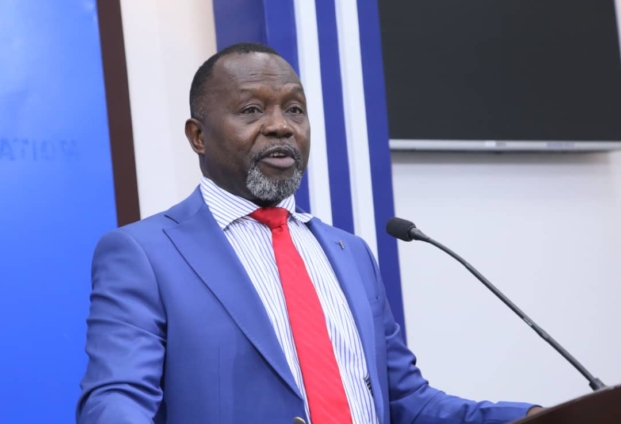Credit: Kekeli K. Blamey
Ghana’s cocoa sector is facing mounting pressure as the Ghana Cocoa Board (COCOBOD) moves away from its traditional syndicated loan financing model, raising alarms about the future of local supply chain actors and the broader cocoa economy.
Dr. Randy Abbey, Acting CEO of COCOBOD, has highlighted serious concerns about the ripple effects of this financial shift, warning that it could destabilize the purchasing framework that ensures cocoa beans are efficiently collected from farmers and moved into global markets.
In a recent media interaction, Dr. Abbey confirmed that COCOBOD would not pursue a syndicated loan for the 2025/2026 cocoa season—a funding mechanism that historically provided vital liquidity to Licensed Buying Companies (LBCs) to purchase cocoa directly from farmers.
“The absence of syndicated loans means no seed fund. That, in turn, means our LBCs—especially indigenous ones—can’t operate effectively,” he explained.
Under the typical model, COCOBOD leverages a syndicated loan from international banks to create a seed fund that supports the operations of LBCs across the country. Without this, many local buyers are cash-strapped and unable to purchase beans, threatening delays in crop collection and jeopardizing Ghana’s position as the world’s second-largest cocoa producer.
While COCOBOD stands to save on interest payments—potentially avoiding borrowing GH¢3 to GH¢3.5 billion at rates of 8% to 10% per dollar—the cost-saving comes at a time when cocoa prices are historically high, making liquidity even more essential.
“This is not just about one company or another,” Dr. Abbey emphasized. “It’s about the integrity of an entire national value chain. If local buyers can’t operate, cocoa won’t get bought, and that affects farmers, exports, and foreign exchange earnings.”
To avert a full-scale crisis, Dr. Abbey has proposed that the Bank of Ghana release a small portion of banks’ cash reserve holdings to create a temporary support fund. He suggests using 2% to 3% of the reserves—which banks are mandated to keep with the central bank but currently remain idle—as a targeted facility to stabilize indigenous LBCs.
“This funding could be ring-fenced for cocoa purchases only,” he said. “This ensures the money goes where it’s intended—supporting our farmers and keeping the buying chain functional.”
Though discussions with the central bank are ongoing, Dr. Abbey issued a sobering caution: time is of the essence.
“If we don’t act quickly and smartly, we risk losing not just LBCs, but the entire balance of our cocoa supply system.”







